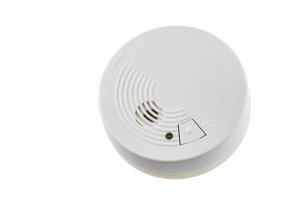Some landlords will privately rent their property to a tenant whom they source themselves. Other landlords will opt to have an estate or letting agent advertise the property and source a tenant on their behalf. Some packages will also include a property management service where the agent will service any queries or complaints from the tenant, at times arranging for a contractor to attend the property to carry out any remedial works required. Whether a property is let privately by a landlord, or via an estate agent, there are certain legal obligations that must be met.
We fulfil instructions for

We are a trusted contractor for landlords, letting agents and property management companies
our services
Energy Performance Certificate (EPC)

Much like the multi-coloured sticker on new appliances, EPCs tell you how energy efficient a building is and give it a rating from A (very efficient) to G (inefficient).
The EPC illustrates an energy-efficiency rating that could be achieved, if certain improvements are made. It also highlights cost-effective ways to achieve a better rating. EPCs are valid for 10 years from when issued. By law, all buildings that are sold or rented out need an Energy Performance Certificate (exceptions apply).
From April 2018, a minimum energy rating of E is generally required for privately rented homes. A fixed penalty notice may be issued for homes that do not meet the minimum standard. If you don't have an EPC for your private rental property, or would like advice on how to improve the energy rating of your home, please click here.
Gas Safety Certificates
By law, all rental properties require an annual gas safety check. This will ensure gas appliances and fittings are safe to use. There is a legal requirement on you to have all gas appliances  safety checked by a registered engineer and you also need to maintain gas pipework and flues for safe operation and integrity.
safety checked by a registered engineer and you also need to maintain gas pipework and flues for safe operation and integrity.
A record of the annual gas safety check should be provided to your existing tenants within 28 days of completion, or to new tenants upon the start of their tenancy. If the rental period is less than 28 days at a time you may display a copy of the record in a prominent position within the dwelling. You’ll need to keep copies of the record for at least 2 years.
Legionella Risk Assessments

Legionellosis is a collective term for diseases caused by Legionella, a bacteria including the most serious Legionnaires’ disease. Legionnaires’ disease is a potentially fatal form of pneumonia and everyone is susceptible to infection. The risk increases with age but some people are at higher risk including:
- people over 45 years of age
- smokers and heavy drinkers
- people suffering from chronic respiratory or kidney disease
- diabetes, lung and heart disease
- anyone with an impaired immune system
Organisations, or self-employed individuals, who provide residential accommodation or who are responsible for the water system(s) in their premises, are responsible for ensuring that the risk of exposure to Legionella in those premises is properly assessed and controlled. All water systems require an assessment of the risk which they can carry out themselves if they are competent, or employ somebody who is.
EICR and PAT Testing

An EICR is an Electrical Installation Condition Report. It is a formal document that is produced following an assessment of the electrical installation within a property. It must be carried out by an experienced qualified electrician or approved contractor. One of the most common reasons an EICR is requested is in when a property is being sold of rented. An EICR is also recommended in all domestic homes every 10 years to check the condition of the electrical installation and ensure there is no deterioration.
Portable Appliance Testing (PAT Testing) is the process of checking electrical appliances for safety through a series of visual inspections and electronic tests. This is a good way for landlords to ensure that they are meeting their legal obligations, to maintain high standards of electrical safety in their rented property. To establish the safety and suitability of your electrical appliances, a competent person will carry out a visual inspection of the appliance, its plug and lead. For Class 1 equipment, they will also inject test signals into the cable and appliance to ensure their integrity.
Smoke Detectors

Smoke alarms provide a vital early warning and can allow extra time to escape if there is a fire in your home. Since October 2015, landlords are legally required to install smoke alarms in rental properties and could face fines of up to £5,000 if they fail to comply.
There are many different types of smoke alarms available including strobe light and vibrating-pad alarms for those who are deaf or hard of hearing, joint smoke and carbon monoxide alarms, and mains-powered alarms.
As a minimum you should have at least one device fitted on the ceiling of every floor in your home, however, we recommend you fit one in every room you regularly use as well as in the hallway.
Ideal locations for smoke alarms include rooms where electrical equipment is left switched on, such as living rooms or bedrooms.
Carbon Monoxide Detectors

Unsafe gas appliances can produce a highly poisonous gas called carbon monoxide (CO). It can cause death as well as serious long term health problems such as brain damage. CO is produced by the incomplete burning of natural gas or liquefied petroleum gas (LPG). This happens when a gas appliance has been incorrectly fitted, badly repaired or poorly maintained. It can also occur if flues, chimneys or vents are blocked.
Oil and solid fuels such as coal, wood, petrol and oil can also produce carbon monoxide.
CO poisoning occurs when you breathe in the gas and it replaces oxygen in your bloodstream. Without oxygen, your body tissue and cells die. Even small amounts of the gas can cause CO poisoning, and long term effects can include paralysis and brain damage.
The six main symptoms to look out for:
- Headaches
- Dizziness
- Nausea
- Breathlessness
- Collapse
- Loss of consciousness
An audible CO alarm will alert you to the presence of the poisonous gas in your home. Although no substitute for having your appliances serviced and checked regularly, fitting a CO alarm in your property is strongly recommended as a second line of defence against carbon monoxide poisoning.
Our Service Promise
Our service promise of delivering a professional, thorough and timely service is pivotal to our businesses ethos. This is illustrated through our client feedback, below are some examples. For more reviews please see our Facebook page and our Checkatrade page, which hosts independently verified reviews.


